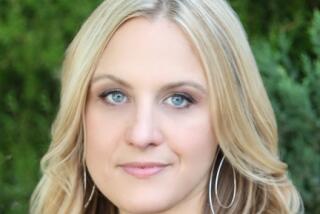Keeping a Promise to Tolerate Critics
Promise Keepers, the nationwide evangelical Christian men’s movement, kicks off another summer of rallies at stadiums across the country with tonight’s gathering at the Los Angeles Coliseum. The group has consistently been the object of high praise. Judge Robert Bork in his best-seller, “Slouching Towards Gomorrah” wrote that Promise Keepers “can do more to alter personal behavior and elevate cultural standards than the traditional churches have been capable of doing.”
Yet the same hackneyed criticisms of Promise Keepers from liberal special-interest groups again are making their annual appearance. This time, the spin is that Promise Keepers is actually a stalking horse for the political agenda of the “radical right.” Promise Keepers’ rhetoric about faith, family and friendship is really just a clever sugar-coating for the mean-spirited Republican “contract with America,” which, of course, if fully adopted will wrap its sinister tendrils around the poor, elderly and infirm and slowly choke their lives away.
But a look at the facts of the Promise Keepers movement belies such politically partisan paranoia. From its first meeting in 1990, which drew all of 72 men, it has experienced stunning growth to the point where its nearly two dozen urban conferences last year drew 1 million men from all backgrounds.
Founded by former University of Colorado football coach Bill McCartney, primarily as a means of communicating to other men the principles that had rescued his marriage from the brink of destruction, the private organization today has a staff of 300 and a budget of more than $60 million.
Promise Keepers’ conferences seek to build commitments to marital fidelity, responsible fatherhood, racial reconciliation and Christian unity, all delivered by an ethnically diverse roster of speakers. The events are essentially day-and-a-half long Bible studies. This hardly fits the menacing profile presented by the group’s secular liberal adversaries who, if they actually attended a meeting, would find it falls far short of the racist, sexist and homophobic festivals of their fantasies.
Such was the experience of a Ms. magazine reporter, Donna Minkowitz, who went to a Promise Keepers session undercover, which is to say she dressed as a man. Expecting something akin to a Nuremburg rally, she instead found humble men rededicating themselves to Christ, their families and each other. She wrote, “Over and over, men are urged to show their emotions, to let go of their anger, to reevaluate how they treat the women in their lives. [Speakers] emphasize that men’s fear of being seen as weak or unimportant ... can become a terrible obstacle in all their relationships. I’m struck by how close it all sounds to feminism.”
Whether consistent with aspects of feminism or not, the transcendent, self-abnegating values espoused by Promise Keepers are a potent antidote to the socially poisonous strains of nihilism, separatism and selfishness coursing through the body of American society. Promise Keepers’ meteoric development is a powerful testament of the movement’s relevance to the complex problems confronting men in a socially and economically changing world. Further, inasmuch as it is one of the most notable contemporary examples of the venerable American tradition of resorting to voluntary associations rather than governmental authority as a means of social problem-solving, Promise Keepers reminds us of the enduring ability of the American experiment to meet new challenges.
So rather than obsess over the political pedigree of Promise Keepers philosophy or manufacture cynical explanations for the movement’s motives, its detractors would do well to exercise a measure of that most liberal of virtues, tolerance, and be glad for the substantial good that Promise Keepers clearly does.
More to Read
The biggest entertainment stories
Get our big stories about Hollywood, film, television, music, arts, culture and more right in your inbox as soon as they publish.
You may occasionally receive promotional content from the Los Angeles Times.










